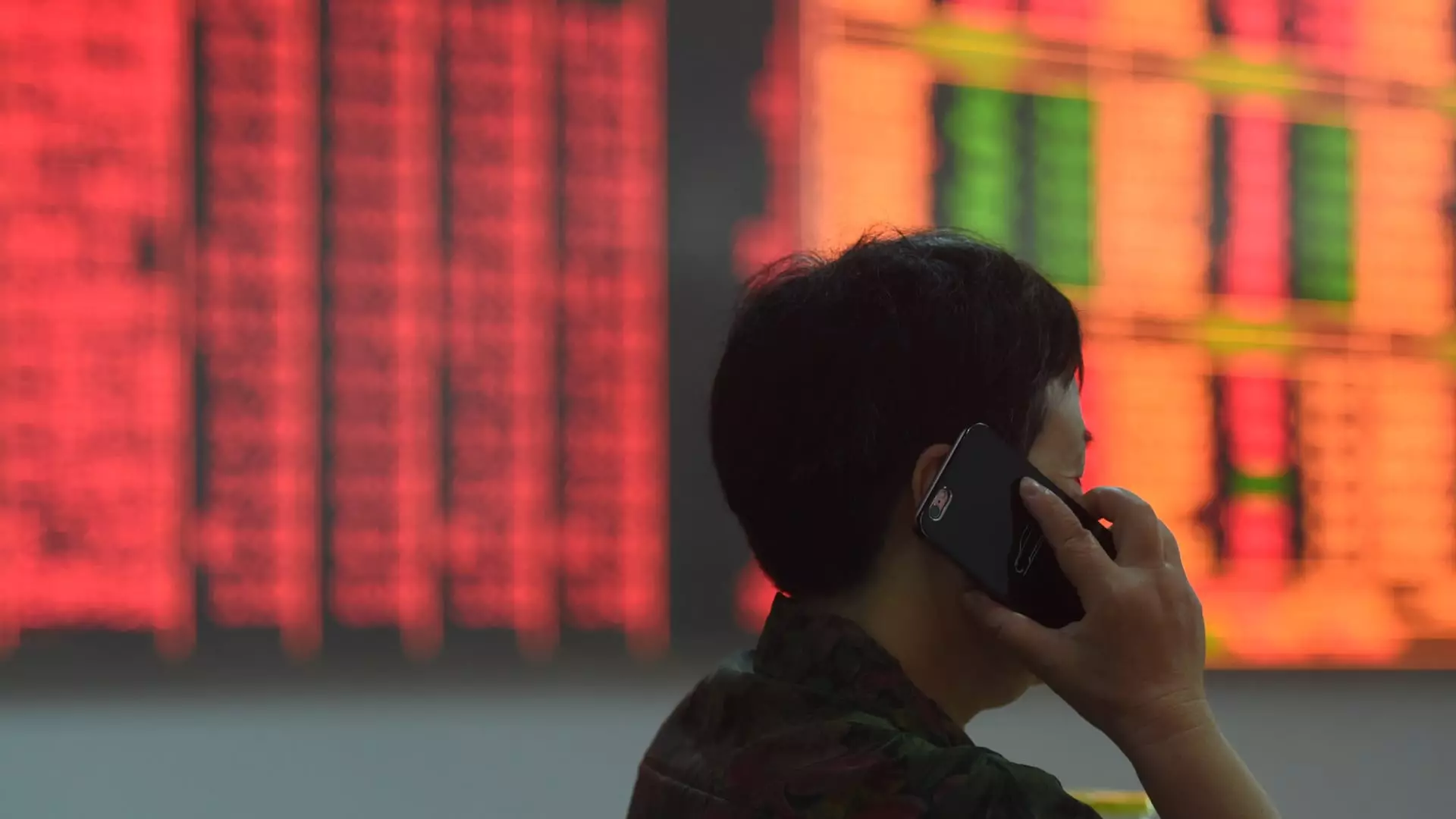The recent economic measures implemented by the Chinese government seem more oriented toward stabilizing market sentiment than addressing the entrenched issues rooted in the economy. Following a Politburo meeting led by President Xi Jinping, news surfaced that key initiatives aimed at reviving the faltering real estate sector were underway. Analysts interpreted this high-profile meeting, which called for an end to the slump in property markets and a strengthening of monetary policies, as a signal of recognition from the central government regarding the seriousness of the economic downturn. While stock indices such as the Shanghai Composite saw a welcome increase—reaching their highest levels in three months—many economists warn that these moves may not translate into sustained recovery.
Ting Lu, the chief economist at Nomura, suggests that the government’s approach may resemble a “shock and awe” strategy aimed at re-establishing confidence within the markets. However, he stresses that this method lacks the depth needed to tackle chronic issues plaguing China’s economy. The property market, for instance, has been in decline for four consecutive years, indicating a systemic problem that short-term measures are unlikely to rectify. The call for policy adjustments—though a step in the right direction—falls short of providing clarity on how to overcome these deeply rooted challenges.
Lu estimates that any additional stimulus introduced might only correspond to about 3% of China’s annual gross domestic product (GDP), suggesting limited potential effectiveness. He urges the market to prioritize detailed and coherent stimulus measures rather than simply react to overarching policy announcements. Without a well-developed framework in place to guide these initiatives, any hasty or ill-conceived stimulus could lead to limited impact.
Despite the recent infusion of liquidity through interest rate cuts and mortgage rate reductions by the People’s Bank of China, consumer and business confidence remains dangerously low. Analysts emphasize a critical disconnect between the government’s monetary easing and the psychological barriers faced by consumers hesitant to spend or borrow. Paul Christopher from Wells Fargo suggests that the prevailing sentiment among consumers, exacerbated by uncertainties in the real estate sector, complicates the government’s efforts to stimulate the economy effectively.
Moreover, survey data from the China Beige Book indicates a disturbing trend: corporate borrowing has decreased, despite the lower costs associated with it. The findings suggest that merely lowering interest rates may not be sufficient to inspire confidence among businesses and households. Investors and economists alike express caution, noting that the consumer sentiment requires more than financial incentives; it calls for a long-term vision of stability and growth.
China’s monetary decisions come amid a favorable shift in U.S. Federal Reserve policies, which could provide additional leeway for China to enact its own rate cuts. However, the real implications of such synchronization in policies remain unclear. Historical reliance on monetary policy to catalyze growth may not yield the intended results if consumer and corporate confidence continue to languish.
As optimism fluctuates—evident in the significant uptick in Chinese equities—the long-term outlook remains uncertain. Shehzad Qazi from the China Beige Book notes that while there may be a temporary enhancement in market conditions due to these external stimuli, the overarching decline in wealth associated with the property market poses far more formidable challenges.
Investors have been quick to respond, seizing the moment to invest in undervalued Chinese stocks. However, experts like Bruce Liu from Esoterica Capital warn that the short-term nature of such rallies does not account for the structural limitations of the economy. The necessity for a robust capital market is crucial for sustainable growth; however, the overarching theme from recent government communications has been seemingly superficial.
It is crucial to emphasize that while sentiment can shift rapidly, creating an environment conducive to genuine economic growth will require a focused approach to policy-making, one that addresses the systemic issues that have haunted the country for years. Without such a commitment, the risk remains that fleeting market optimism could give way to a deeper economic malaise, underscoring the need for coherent, actionable policies to ensure a stable trajectory for the world’s second-largest economy.
While recent policy moves may temporarily bolster market sentiment, the enduring health of China’s economy hinges on the government’s capacity to innovate solutions that tackle its most persistent challenges. Observers will be closely monitoring whether these signs of change will materialize into substantive, long-term reforms.

